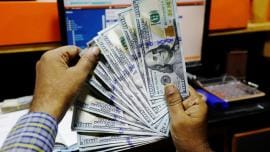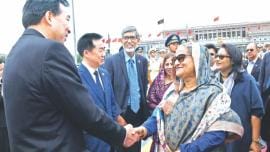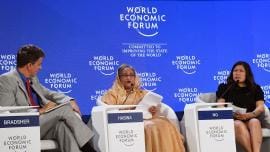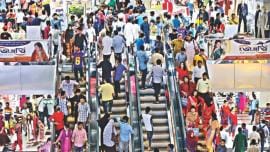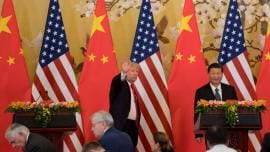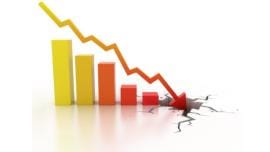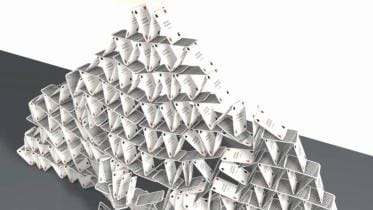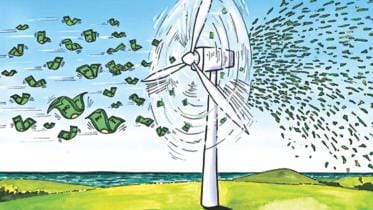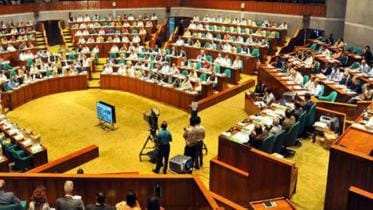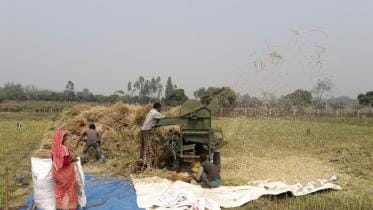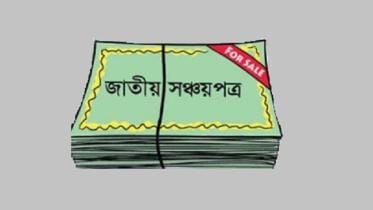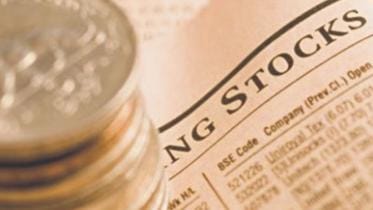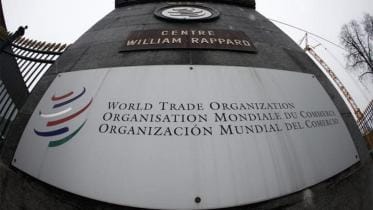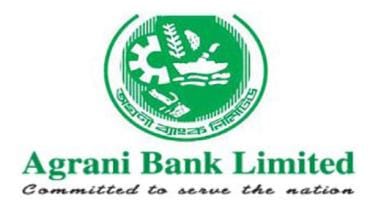Taka policy in a changing world
7 August 2019, 18:00 PM
Finance
Privatisation increases corruption
30 July 2019, 18:00 PM
Finance
The PM’s China visit
7 July 2019, 18:00 PM
Finance
2019 SUMMER DAVOS FORUM / An open world economy in a new era of globalisation
6 July 2019, 18:00 PM
Finance
Consumer Rights Violations / Why filing complaints is absolutely necessary
2 July 2019, 18:00 PM
Finance
What does Bangladesh gain from the US-China trade war?
18 June 2019, 18:00 PM
Finance
The emerging cracks in our external sector
11 June 2019, 18:00 PM
Finance
Smart priorities for the new government’s first budget
7 May 2019, 18:00 PM
Finance
High interest rate: Is it in the public interest?
27 April 2019, 18:00 PM
Finance
What the rising GDP and per capita income are not telling us
8 April 2019, 18:00 PM
Finance
Taka policy in a changing world
It is still widely believed that depreciation of taka vis-à-vis foreign currencies—especially US dollar—will boost Bangladesh’s export earnings. This is true only if our exports are priced or invoiced in Bangladeshi taka. For example, if a shirt made in Bangladesh is invoiced at Tk 1,000, at an exchange rate of USD 1 = Tk 85, the shirt will cost USD 11.76 in the international market.
7 August 2019, 18:00 PM
Privatisation increases corruption
International financial institutions (IFIs) have typically imposed wide-ranging policy reforms—called “conditionalities”—in exchange for country governments to secure access to financial assistance.
30 July 2019, 18:00 PM
The PM’s China visit
It is undeniable that Prime Minister Sheikh Hasina has, quite deftly, made the most of the fast-changing regional and global geopolitics, eventually emerging as a strong leader in South Asia.
7 July 2019, 18:00 PM
An open world economy in a new era of globalisation
The 2019 Summer Davos Forum, also known as the “World Economic Forum’s 13th Annual Meeting of the New Champions,” was held during July 1-3, 2019 in the coastal city of Dalian in northeast China’s Liaoning province.
6 July 2019, 18:00 PM
Why filing complaints is absolutely necessary
I assume there is hardly anyone amongst us who has never felt cheated after buying a product or taking a service in exchange for money.
2 July 2019, 18:00 PM
What does Bangladesh gain from the US-China trade war?
As the US-China trade war intensifies, pundits on both sides of the Pacific and elsewhere are wondering: who is the real winner?
18 June 2019, 18:00 PM
The emerging cracks in our external sector
The robust external sector performance has been a strong pillar on which Bangladesh’s impressive macroeconomic stability and growth of recent years was founded. The strong performance was underwritten by several factors.
11 June 2019, 18:00 PM
Smart priorities for the new government’s first budget
Since 2015, Copenhagen Consensus and BRAC have collaborated on Bangladesh Priorities to create a bridge between policy and research. This is driven by the belief that, with limited resources and time, it is crucial that decisions are informed by what will do the most good for each taka spent.
7 May 2019, 18:00 PM
High interest rate: Is it in the public interest?
Interest rate is a much-talked-about issue as far as savings and investment are concerned.
27 April 2019, 18:00 PM
What the rising GDP and per capita income are not telling us
On April 4, 2019, the World Bank presented its latest economic forecast that Bangladesh's economy will grow at 7.3 percent in the
8 April 2019, 18:00 PM
Saving our ailing banking sector
Bangladesh's banking sector faces a number of major challenges including rising nonperforming loans, credit concentrations, poor
26 March 2019, 18:00 PM
Can informal digital commerce bring women's financial inclusion?
When talking about financial inclusion, we often focus on closing the gender gap in financial account ownership as a means of empowering women.
9 March 2019, 18:00 PM
Breaking new ground: Why Bangladesh should adopt digital financial services
With the evolving time, banks have made some progress with regard to their technology and are trying to provide faster and better services to customers. However, these services are comparatively beneficial to a certain percentage of people from the urban areas.
28 January 2019, 18:00 PM
No winds of change
Riding on the long bull-run of 2017, investors in Bangladesh's stock exchange may have thought that perhaps the year 2018 will not be too bad either. After all if past record is any guide, election years typically mean more money being pumped into the market.
27 December 2018, 18:00 PM
Muhith keeps mum on banking sector
Nothing budges Finance Minister AMA Muhith after yesterday’s spree of attacks as he kept from commenting over the banking sector at parliament today.
11 June 2018, 08:12 AM
Why the business-as-usual approach cannot sustain graduation momentum
As we know by now, Bangladesh has attained all three criteria for graduation from the least developed country (LDC) group.
22 March 2018, 18:00 PM
Sanchayapatra and cost of borrowing
There is a lot of controversy these days surrounding the interest rates offered by Sanchayapatra of the Department of National Savings, which the government uses to finance its budget deficit.
7 January 2018, 18:00 PM
Buoyant but not resilient
With the year 2017 drawing to a close, we are left with both positive and not-so-positive observations from the country's stock market. We all know that after the crash in 2010, the market has been in the doldrums for several years.
28 December 2017, 18:00 PM
WTO Ministerial Conference - Rejuvenating free trade
The Eleventh Ministerial Conference (MC11) of the World Trade Organization will be held on December 10-13 in Buenos Aires, Argentina. The meeting of this highest decision-making body of the WTO, which meets at least once every two years, is taking place at a critical moment of the free trade movement.
6 December 2017, 18:00 PM
JS committee forms body to probe Agrani Bank ‘loan scam'
A parliamentary body is formed a three-member sub-committee to give recommendations on a Bangladesh Bank report that got huge irregularities in giving loans from the state-run Agrani Bank.
22 November 2017, 16:03 PM



